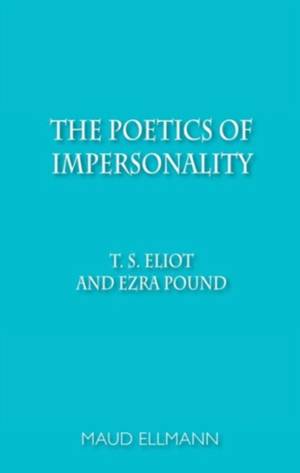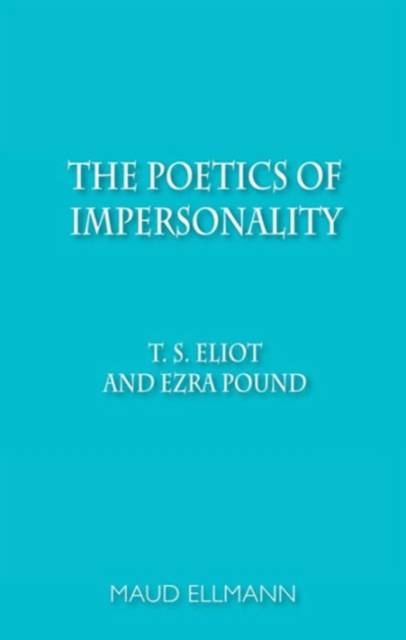
- Retrait gratuit dans votre magasin Club
- 7.000.000 titres dans notre catalogue
- Payer en toute sécurité
- Toujours un magasin près de chez vous
- Retrait gratuit dans votre magasin Club
- 7.000.0000 titres dans notre catalogue
- Payer en toute sécurité
- Toujours un magasin près de chez vous
Description
In this classic work, Maud Ellmann examines T. S. Eliot's and Ezra Pound's criticism in terms of what she calls the 'poetics of impersonality'. She convincingly shows that Eliot's and Pound's attempts to overcome personality merely reinstated it in a new guise. And her superb and entirely original readings of the major poems of the modernist canon have earned a lasting place in criticism.
Following an analysis of Eliot's relation to Bergson, Ellmann goes on to analyse Eliot's 'Tradition and the Individual Talent' and the later After Strange Gods, the early poems, The Waste Land, and Four Quartets. She then turns to Pound's Personae, particularly 'Mauberley', and the Cantos. Ellmann looks for the contradictions inherent in modernist literary ideology and deftly teases out their implications. Stylish and perceptive, this book marked the debut of a major literary critic, and it has as much resonance today as it did on first publication.
Spécifications
Parties prenantes
- Auteur(s) :
- Editeur:
Contenu
- Nombre de pages :
- 224
- Langue:
- Anglais
Caractéristiques
- EAN:
- 9780748691296
- Date de parution :
- 23-09-13
- Format:
- Livre broché
- Format numérique:
- Trade paperback (VS)
- Dimensions :
- 140 mm x 216 mm
- Poids :
- 263 g

Les avis
Nous publions uniquement les avis qui respectent les conditions requises. Consultez nos conditions pour les avis.






